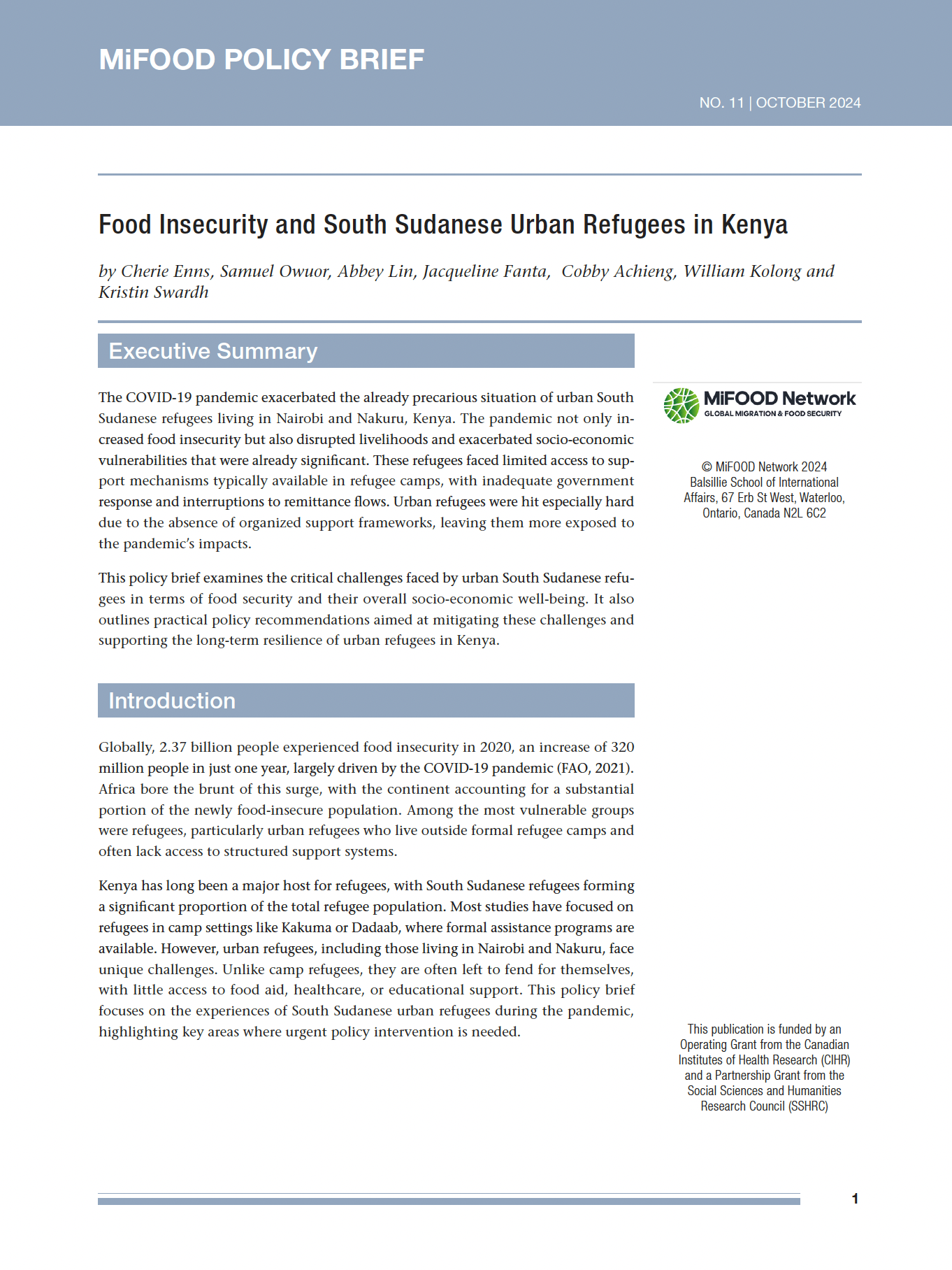The COVID-19 pandemic exacerbated the already precarious situation of urban South Sudanese refugees living in Nairobi and Nakuru, Kenya. The pandemic not only increased food insecurity but also disrupted livelihoods and exacerbated socio-economic vulnerabilities that were already significant. These refugees faced limited access to support mechanisms typically available in refugee camps, with inadequate government response and interruptions to remittance flows. Urban refugees were hit especially hard due to the absence of organized support frameworks, leaving them more exposed to the pandemic’s impacts.
This policy brief examines the critical challenges faced by urban South Sudanese refugees in terms of food security and their overall socio-economic well-being. It also outlines practical policy recommendations aimed at mitigating these challenges and supporting the long-term resilience of urban refugees in Kenya.

